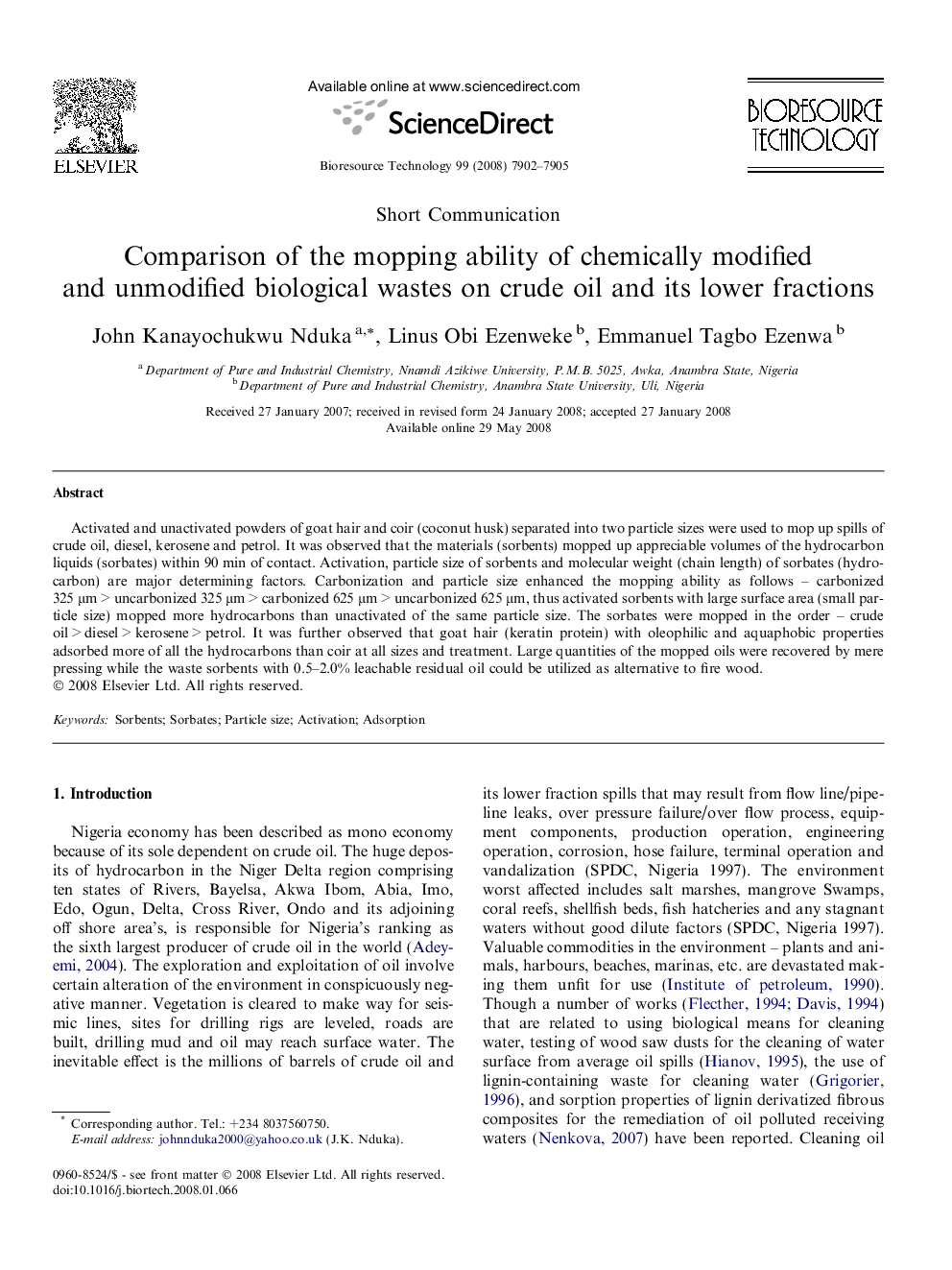| Article ID | Journal | Published Year | Pages | File Type |
|---|---|---|---|---|
| 685072 | Bioresource Technology | 2008 | 4 Pages |
Activated and unactivated powders of goat hair and coir (coconut husk) separated into two particle sizes were used to mop up spills of crude oil, diesel, kerosene and petrol. It was observed that the materials (sorbents) mopped up appreciable volumes of the hydrocarbon liquids (sorbates) within 90 min of contact. Activation, particle size of sorbents and molecular weight (chain length) of sorbates (hydrocarbon) are major determining factors. Carbonization and particle size enhanced the mopping ability as follows – carbonized 325 μm > uncarbonized 325 μm > carbonized 625 μm > uncarbonized 625 μm, thus activated sorbents with large surface area (small particle size) mopped more hydrocarbons than unactivated of the same particle size. The sorbates were mopped in the order – crude oil > diesel > kerosene > petrol. It was further observed that goat hair (keratin protein) with oleophilic and aquaphobic properties adsorbed more of all the hydrocarbons than coir at all sizes and treatment. Large quantities of the mopped oils were recovered by mere pressing while the waste sorbents with 0.5–2.0% leachable residual oil could be utilized as alternative to fire wood.
